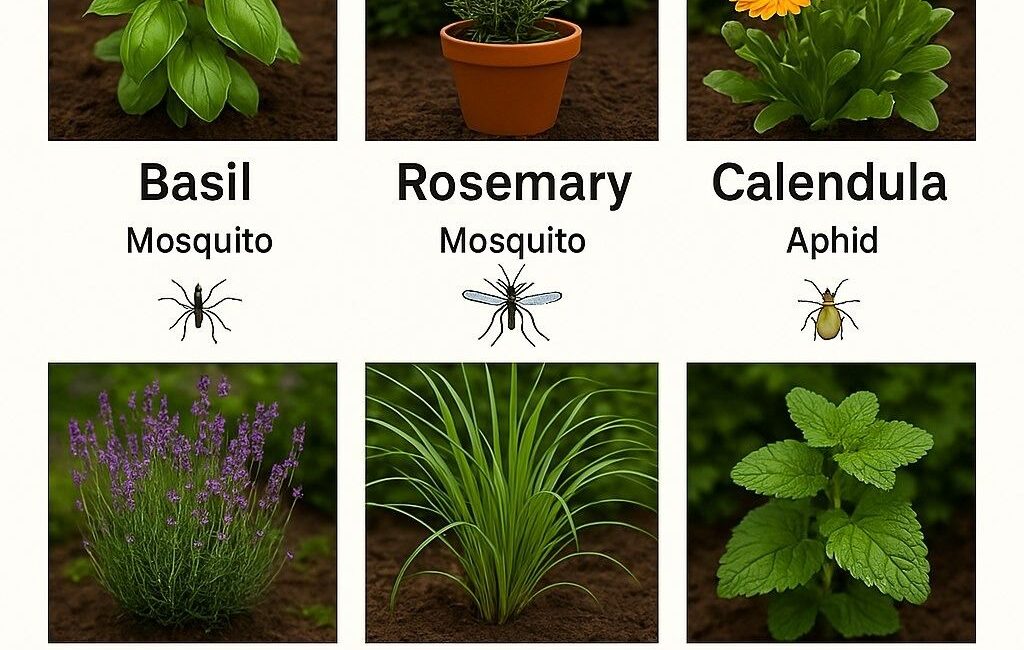- Plant in partial shade (it can tolerate full sun in cooler areas).
- Use leaves fresh in teas and salads.
- Rub leaves directly on the skin for a short-term barrier.
🍃 Row 3: Strong Scents and Versatile Uses
7. Peppermint (Mentha × piperita)
Repels: Mosquitoes, ants, spiders, and flies
The potent menthol in peppermint gives it a strong aroma that deters multiple insect species. It’s also mildly soothing on insect bites.
How to use:
- Grow in containers (mint spreads aggressively).
- Place near doorways or seating areas.
- Crush leaves and apply to pulse points for a natural repellent.
8. Thyme (Thymus vulgaris)
Repels: Mosquitoes and garden pests
Thyme produces thymol, an oil shown to offer mosquito protection comparable to synthetic repellents. Lemon thyme is particularly effective due to its citronella-like scent.
How to use:
- Use as ground cover or in herb spirals.
- Burn thyme leaves to create a smoke barrier outdoors.
- Infuse oil with thyme to make a DIY skin spray.
9. Catnip (Nepeta cataria)
Repels: Mosquitoes (10x more effective than DEET in some studies!)
Catnip contains nepetalactone, a chemical that excites cats but repels mosquitoes even more effectively than some synthetic repellents.
How to use:
- Grow in sunny spots, but protect from roaming cats if needed.
- Crush the leaves or make a natural bug spray.
- Plant strategically in mosquito-prone areas.
10. Bonus: Marigold (Tagetes spp.)
Repels: Mosquitoes, aphids, nematodes, and whiteflies
Marigolds release a distinctive smell containing pyrethrum, a natural insecticide. These bright flowers can guard garden borders and vegetable beds alike.
How to use:
- Interplant with vegetables to deter pests.
- Place pots near doorways or windows.
🌱 Designing a Mosquito-Free Garden
To make the most of these plants:
- Group them near patios, windows, and doorways.
- Crush leaves occasionally to release more aroma.
- Use containers to move them where needed.
- Mix plant types to repel a broader range of pests.
- Harvest leaves for teas, oils, or cooking—maximizing both function and flavor.
🌼 Why Choose Plant-Based Repellents?
- ✅ Eco-friendly and sustainable
- ✅ Safe for pets and children
- ✅ No toxic residues or harsh chemicals
- ✅ Beautify your space while serving a purpose
- ✅ Support biodiversity and pollinators
🌿 Final Thoughts
Nature has equipped many plants with powerful insect-repelling properties. By incorporating even a few of these into your garden, balcony, or patio, you can reduce your reliance on chemical sprays and enjoy a naturally pest-resistant environment. Whether you’re growing herbs for cooking or flowers for beauty, these plants are your best allies in the fight against mosquitoes.




